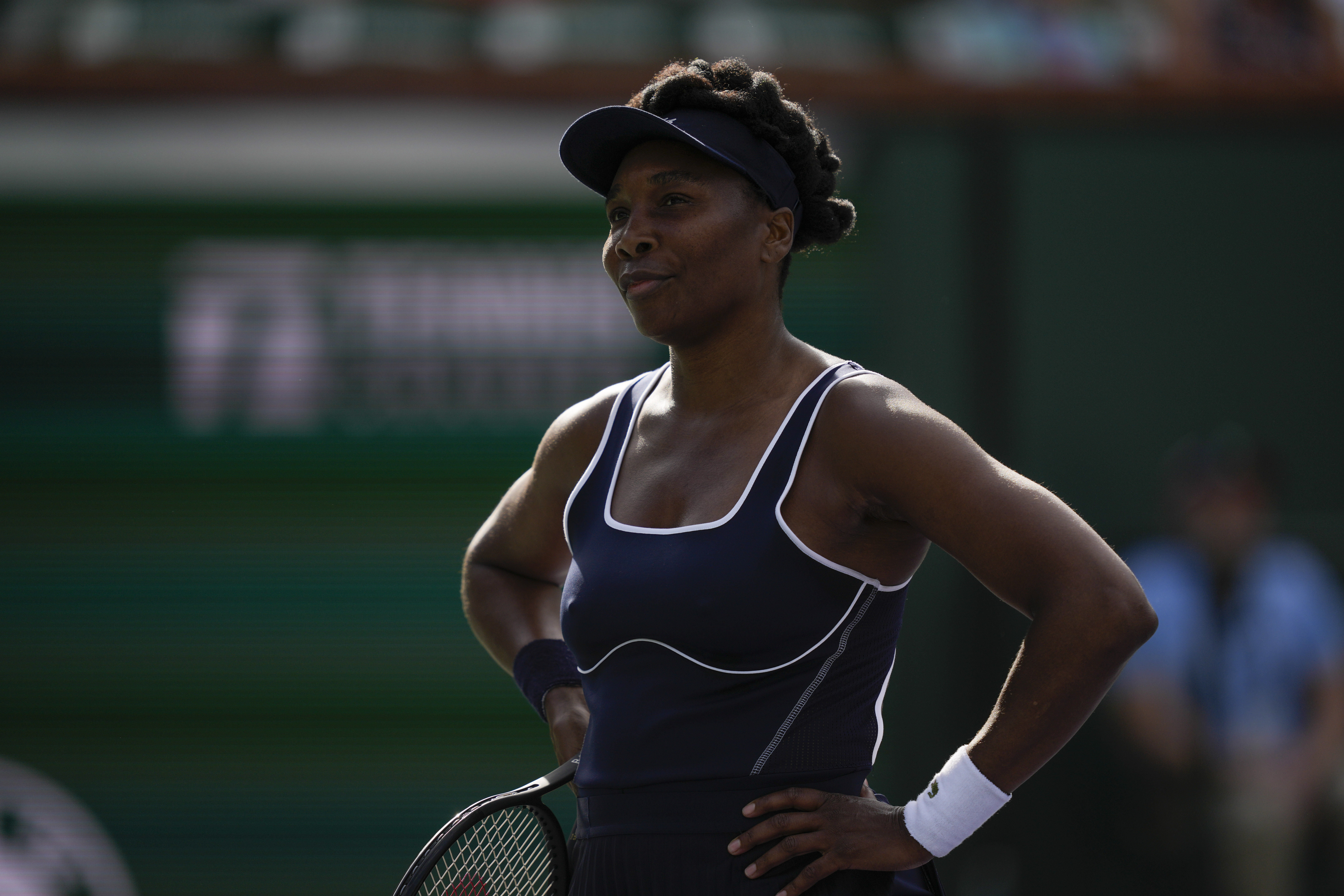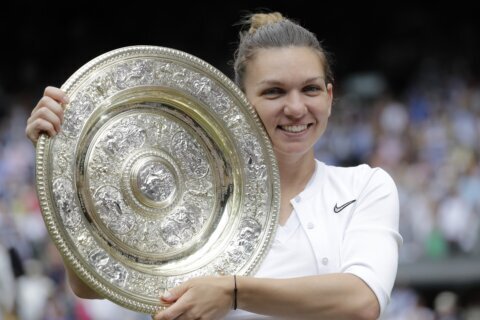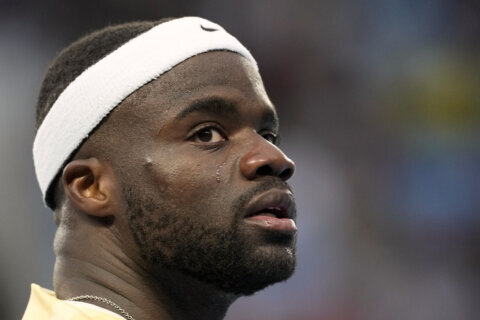WIMBLEDON, England (AP) — Novak Djokovic is well aware, of course, of all that is in the offing over the next fortnight and, should that go well, what else would be on the horizon for him in the weeks and months that will follow.
Win his next seven matches at Wimbledon, starting Monday with the traditional honor given to the defending men’s champion of opening the Centre Court proceedings on Day 1, and Djokovic will own three consecutive titles at the All England Club.
Add those to the other three he’s won on the grass there to make six in all, and to the record nine trophies he owns from the hard courts at the Australian Open, and to the three from the hard courts at the U.S. Open, and to the two from the clay courts at the French Open — try listing all of that without pausing to take a breath — and his total Grand Slam collection would reach 20.
That would tie the men’s mark first reached by Roger Federer in 2018, then equaled last year by Rafael Nadal (who is sitting out Wimbledon).
As it is, the No. 1-ranked Djokovic has won seven of the past 12 Slams, the most ever for a man after turning 30.
Heady stuff, yes. But there’s more.
“The biggest challenge and the biggest task is always how to be present and how to stay in the moment regardless of the possibilities, the hypotheticals, and various options that are out there,” Djokovic said Saturday during a pre-tournament video conference with reporters. “There is always something on the line, I feel like, for me — probably Roger and Rafa, as well — when it comes to the tennis history in the last couple of years. We’ve been very successful, particularly in Slams.”
So let’s trace what sort of tennis history is potentially on the line.
If the 34-year-old from Serbia does win Wimbledon in two weeks’ time — FanDuel Sportsbook lists him as the men’s favorite, as does pretty much any entity or any person paying any attention to tennis — that would make him 3 for 3 at the majors in 2021; he triumphed at Melbourne Park in February, then Roland Garros two weeks ago.
The French Open, where he dethroned 13-time champ Nadal in the semifinals, then came from two sets down to edge Stefanos Tsitsipas in five in the final, “took a lot out of me, I think, mentally and physically and emotionally,” Djokovic said, then spread his arms wide for emphasis as he added: “It also granted me with an incredible amount of positive energy and confidence that created a wave that I’m trying to ride, so to say.”
If he can indeed carry that momentum through Wimbledon, a title would then put him three-fourths of the way to a true, calendar-year Grand Slam, a most-of-the-way-there-but-still-work-to-do achievement which in and of itself would be noteworthy because no man has been the champion at even the first three major tournaments of a season since Rod Laver went on to win all four in 1969.
Djokovic is doing it by pairing tremendous returning and defending with an unparalleled mental strength.
“I admire his day-in, day-out relentless commitment to the sport,” said Jack Draper, the 19-year-old wild-card entry from England who is ranked 250th and will make his main-draw Grand Slam debut against Djokovic. “As a pro, I can appreciate that. It’s one of the toughest things to do. But I think he just gets that right. Obviously his tennis capability is humongous, so definitely going to be a tough challenge on Monday for me.”
Also looming out there for the moment, and discussed as a possibility in Paris both by Djokovic and one of his coaches, Marian Vajda, is a Golden Slam, which would entail winning the four majors plus a gold medal at the Summer Olympics, which start in Tokyo on July 23, less than two weeks after Wimbledon concludes.
As if that weren’t all enough to contemplate, Djokovic is a busy guy without a racket in his hands.
He’s a husband and a father and has joined with Canadian pro Vasek Pospisil to form the Professional Tennis Players Association (PTPA), a group they hope will be able to represent the interests of their sport’s athletes, who do not have any sort of union.
“Once I’m on the court, I try to lock in and I try to exclude all the distractions. I feel like over the years, I managed to develop the mechanism that allows me to do that,” Djokovic said. “Everyone has their own special ways how to center themselves, how to focus themselves, really direct, so to say, the energy in what matters the most, which is the present moment.”
___
More AP tennis coverage: https://apnews.com/hub/tennis and https://twitter.com/AP_Sports
Copyright © 2024 The Associated Press. All rights reserved. This material may not be published, broadcast, written or redistributed.







